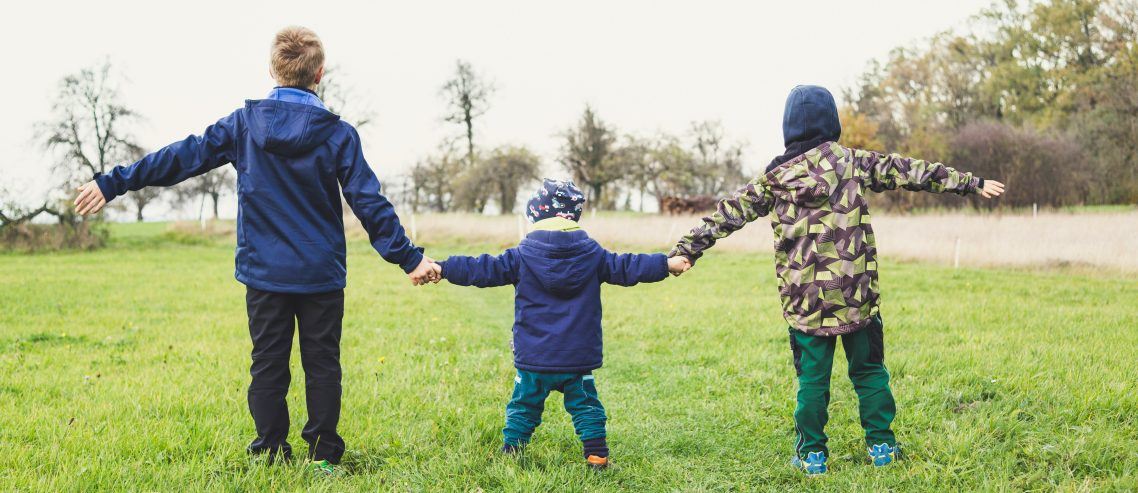The Freedom of Commitment
I stopped counting at thirty. The number of weather apps on my app store seemed like an endless scroll. So many options. Each one vying for a market share – boasting uniqueness, advanced technology, improved graphics, accuracy, convenience. For weather app junkies like me, the hope for the “perfect” app holds promise. It is out there.
Options engender this hope. Options from which we can choose. The “right” car, the “right” school, the “right” job, the “right” spouse, the “right” church, are all a function of the number of options available to me. As consumers, we possess the freedom to sort, investigate, evaluate, and select.
Options have never been as plentiful as they are now. I can shop, price check, and purchase merchandise around the globe from my easy chair. I can work a job virtually from my home 1000 miles away from the office. I can eat a different ethnic cuisine every night of the week. Technology has thrown off constraints that kept men and women of yesteryear bound to limited local options. Did you say you want coffee? We can make that in 40 different ways.
Yet this newfound freedom isn’t as freeing as we would think. Human wellbeing isn’t flourishing because of our abundant choices; rather, in many cases, it is stymied by it. Any option that is not selected is a distraction. Thus, distractions abound as options do. If we are not careful, these distractions can lead to paralysis.
Now, experiencing paralysis at the drive-thru window is unfortunate for sure. But not nearly as unfortunate as paralysis when choosing a career path, or committing to a would-be spouse, or joining an important cause. Commitment is being sacrificed on the idol of options.
Sometimes the ideals we seek are found in the most unlikely places. For example, who would think freedom is found in commitment? By definition, commitment closes down options, narrowing the field of possible doors, not widening it. The freedom of commitment comes then by walking through the one door that is open, by focusing on the one thing before us, and moving along the path, as narrow as it might be, to the purpose it promises. Commitment allows us to focus, invest, and have purpose.
Try the following thought experiment. Choose a notable person, present or past, who has impacted the world for good. Were they committed? Most assuredly they were. Commitment set them free to focus, invest, and live meaningfully in this world. Commitment freed them from distraction and toward meaningful action.
Before we throw ourselves head long into commitment, we must understand the risks. There are reasons we don’t commit ourselves:
- Commitment risks not choosing the best option. What if there is a better house, better job, better school, better community, better spouse for me to choose? A person who commits understands that the choice they have made may not be perfect. A better option is probably out there. The Christian understands God is big enough to carry our imperfections. The committed one is free to invest in their selection and make it the best it can be.
- Commitment risks being wrong. What if I buy the wrong house, take the wrong job, enroll in the wrong school, move into the wrong community, marry the wrong spouse? These are all sobering propositions. The Christian understands God can redeem the wrong decision. Very few decisions in life are without hope.
- Commitment risks being responsible to something besides myself. What if by buying this house, taking this job, enrolling in this school, moving into this community, marrying this spouse, I forfeit my “escape hatch” option and will be coupled to something I don’t want? The Christian understands God calls us to yield our rights for the sake of matters greater than we are. The Christian understands selfless engagement is a part of walking a life bigger than ourselves.
These risks cause us pause. We mitigate these risks by being thoughtful and prayerful about those things to which we commit. Thus, investigation, exploration, and counsel should proceed commitment. But after we, by faith commit, a freedom from distraction ensues that gives way to a beautiful, purposeful action.
This shape of prayerful consideration leading up to commitment and resulting in beautiful action was exampled by our Lord Jesus. When he was in the garden of Gethsemane, Jesus prayed earnestly to the Father for an alternate option to the cross. In this moment of trial, he leaned heavily on his friends who were letting him down. But in a moment, we see a shift happen. A freedom comes over our Lord when he commits himself to the way of the cross. “Sleep on,” he will say to his friends. From this point forward, Jesus sets his face to the cross resolutely, purposefully. He will beautifully live out his remaining hours to the astonishment of many who will look on. By choosing to surrender and commit, Christ found a strange freedom in the way of the cross. That commitment allowed Christ to invest in the cross and its deep, saving, lasting purpose.
The mindset of an investor and consumer are very different. The abundant options that are available to us today have curated a consumer mindset. Such a mindset will make us connoisseurs of choices but not necessarily committed investors. Commitment is required to experience freedom from paralysis so that we can invest in matters of lasting importance.
To view the complete PDF, click here.
Further Information
The Freedom of Commitment Podcast ![]()
Aren’t options great? So much to choose! Yet Kathy Knochel brings a surprising twist to the bliss of options. In this NEW episode of Breaking Bread, she will help us see the shadow of options and the surprising value that comes by way of commitment.





Comments
Leave a Comment